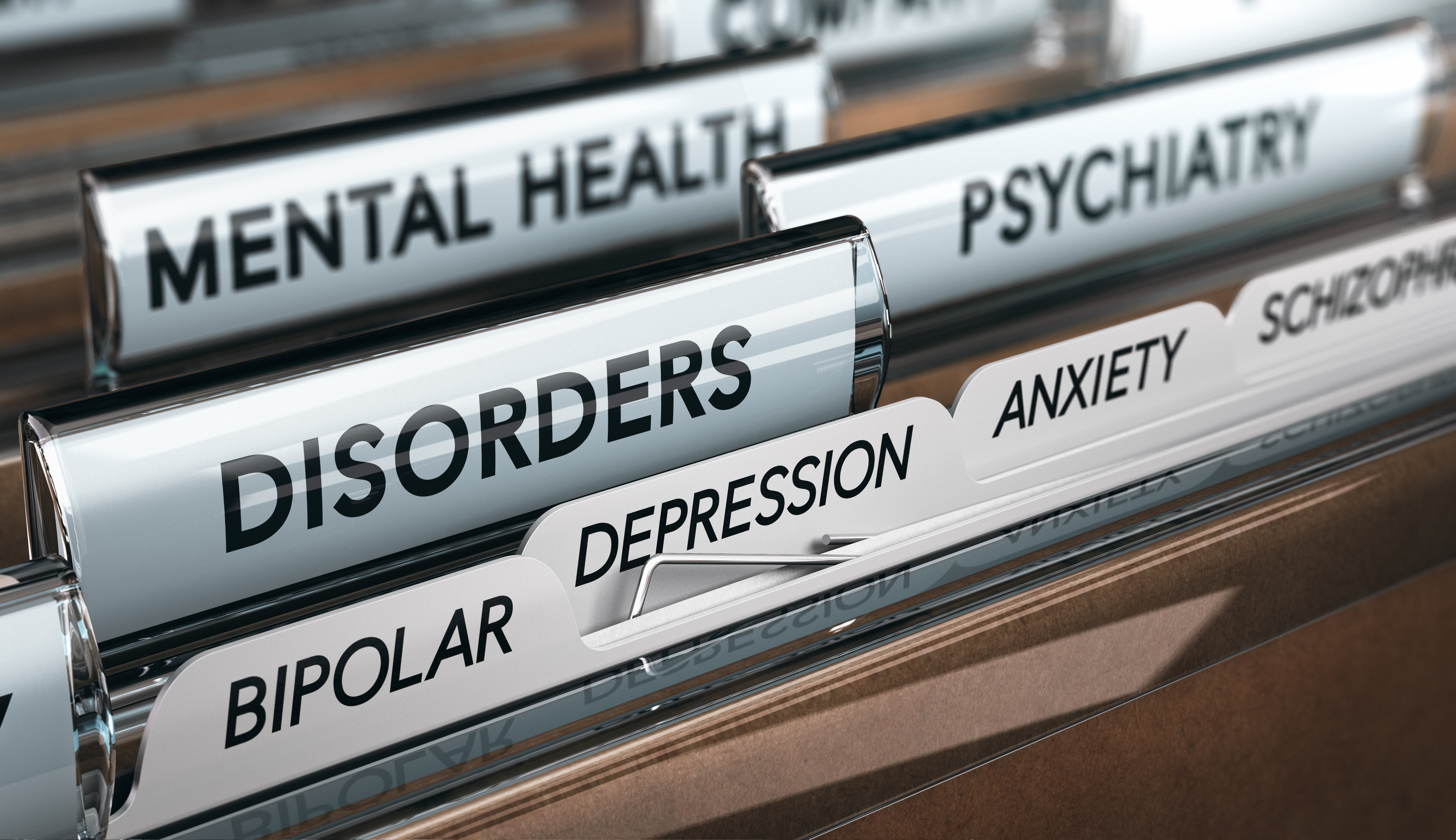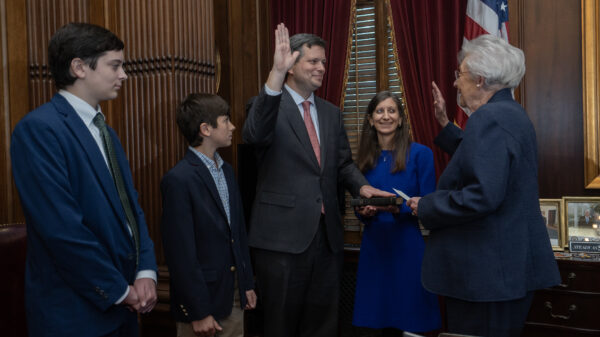Wednesday, House Majority Leader Nathaniel Ledbetter, R – Rainsville, Lt. Gov. Will Ainsworth (R), Speaker of the House Mac McCutcheon, R – Monrovia, Senate President Pro Tem Del Marsh, R – Anniston, Alabama Department of Mental Health Commissioner Lynn Beshear, State Education Superintendent Eric Mackey, House Minority Leader Anthony Daniels, D-Huntsville, as well as the legislators carrying the bills held a press conference to announce a major mental health legislative initiative at a State House news conference.
“47,000 Americans lost their lives to suicide last year,” Rep. Ledbetter said. “It is the second leading cause of deaths for teenagers.”
“We are failing with mental health,” Ledbetter said. “I told the Governor that we are failing mental health. She asked us to lead an initiative to address mental health.”
Alabama Gov. Kay Ivey (R) tasked Ledbetter with leading an effort to improve and expand the mental health services that state government offers the citizens of Alabama. Ivey discussed the importance of the issue during her 2020 State of the State Address.
“The Speaker and the Pro Tem, either them or their staff, have been at every meeting we had,” Ledbetter added. “A member of the Governor’s staff also attended
Ledbetter proposed five pieces of legislation:
A School Service Coordinator Bill sponsored by Ledbetter and Sen. Rodger Smitherman, D – Birmingham, requires each school system within the state to employ a mental health service coordinator subject to legislative appropriation.
A 72-Hour Hold Bill sponsored by Rep. Wes Allen, R – Troy, and Sen. Donnie Chesteen, R – Geneva, authorizes law enforcement officers to place individuals who are believed to have mental illness and pose a threat to themselves or others under 72-hour protective custody, which includes transportation to a hospital for evaluation and treatment.
A CIT Training Bill sponsored by Rep. Rex Reynolds, R – Huntsville, and Sen. Andrew Jones, R – Centre, requires the Alabama Peace Officers Standards and Training Commission to provide mandatory crisis intervention training and continuing education to law enforcement officers.
A Crisis Care Center joint resolution by Rep. Randall Shedd, R – Fairview, and Sen. Garlan Gudger, R – Cullman, calls for the immediate creation and funding of three 24-hour crisis care centers, which serve as an alternative to costly hospital and emergency room visits by providing suicide prevention and other mental health services on an immediate, walk-in basis.
A Stepping Up joint resolution by Rep. Anthony Daniels, D – Huntsville, and Sen. Steve Livingston, R – Scottsboro, encourages Alabama’s 67 counties to implement and embrace the Stepping Up initiative, which seeks to reduce the number of individuals in jail with mental illness.
Ledbetter said that several of these items come with a price tag. The three crisis centers will costs $18 million. This is, “One of the major priorities of our 2020 legislative session.”
“Thank you for you and your committee’s work,” You have put a lot of time and effort in it.” Lt. Gov. Will Ainsworth said. “Alabama, we hear you. We can do a better job. We will do a better job in addressing mental health.”
“This has been an ongoing experience for our legislature to stop and take a look at what we do with mental health in our state,” Speaker McCutcheon said. It is time that we step up. The last time Alabama stepped up on mental health without a court order was in the 1960s with Lurleen Wallace’s $47 million bond issue.”
“It is time to quit kicking the can down the road,” McCutcheon said. “The House will commit a full day to these bills’ passage.”
“What I have found in my time in Montgomery is if somebody does not take a lead on a particular topic nothing gets done we just keep talking about it,” Marsh said thanking Ledbetter and the task force.
“You either have a family member, a friend, or a community member who is affected by mental illness,” Marsh said. “Mental health is not a Republican issue or a Democrat issue. It’s a simple issue of providing needed services that will help reduce recidivism in our prisons, improve performance in our schools, and enhance the quality of life for all Alabamians.”
Sept. Mackey said that, “This is an ongoing effort. Everybody has been wanting to work together to address mental health in this state.”
Mackey said that they “Are hearing from teachers that there are students coming into their classrooms with mental health issues as early as kindergarten and even as early as Pre-K.”
“We want to see that families have the mental health support that they need so that those kids come to school capable of learning,” Mackey said.
Alabama Department of Mental Health Commissioner Lynn Beshear expressed thanks that the legislative and executive branches of government are uniting their powers to address a growing problem.
“The fact that the governor and the Legislature are working so closely and cooperatively on this issues demonstrates its importance to Alabama and its citizens,” Beshear said. “The Alabama Department of Mental Health works hard to provide the best services possible with the dollars we are given, but this legislative initiative and intense emphasis will help us to literally save lives and provide hope where it does not currently exist.”
“The stepping up initiative is the foundational piece,” Beshear said. “This is an initiative that began in 2015 in the White House.” “The goal is to reduce the number of individuals with mental illness in jail.”
“The Montgoemry area was one of the first fifty to sign on to this,” Beshear explained. “They sent teams to receive training. At this time we have 21 county commissions that have signed the stepping up resolution.”
“When a person is discharged from the hospital, the hospital sends them home with a care plan,” Beshear added. “When a person is discharged from jail they need a care plan. If we can reach people early or at a crisis point in their disease process we can prevent it from progressing further.”
Commissioner Beshear said that, “Law enforcement, healthcare, government and the business community come together to create a plan at the regional level.”
The mental health reform bills could be in House and Senate bills as early as next week.





















































